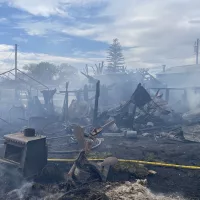CORVALLIS, OR — Nuclear engineers at Oregon State University said they have developed a small, portable and inexpensive radiation detection device that should help people all over the world better understand the radiation around them, its type and intensity, and whether or not it poses a health risk. The device was developed in part due to public demand following the nuclear incident in Fukushima, Japan, in 2011, when many regional residents were unsure what level of radiation they were being exposed to and whether their homes, food, environment and drinking water were safe.
Devices that could provide that type of information were costly and not readily available to the general public, and experts realized there was a demand for improved systems that could provide convenient, accurate information at a low cost. The new system should eventually be available for less than $150.
“With a device such as this, people will be better able to understand and examine the environment in which they live,” said Abi Farsoni, an associate professor of nuclear engineering in the OSU College of Engineering. “Radiation is a natural part of our lives that many people don’t understand, but in some cases there’s also a need to measure it accurately in case something could be a health concern. This technology will accomplish both those goals.”
If you see local news happen, call the Horizon Broadcasting Group News Tip Hotline at 541-323-NEWS, or email us.















